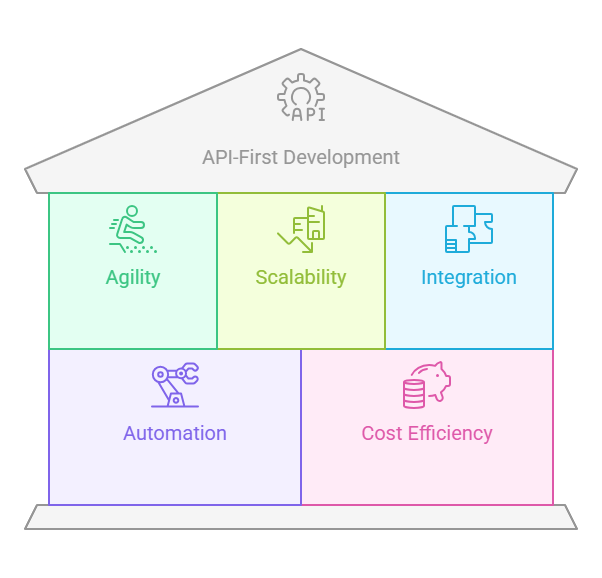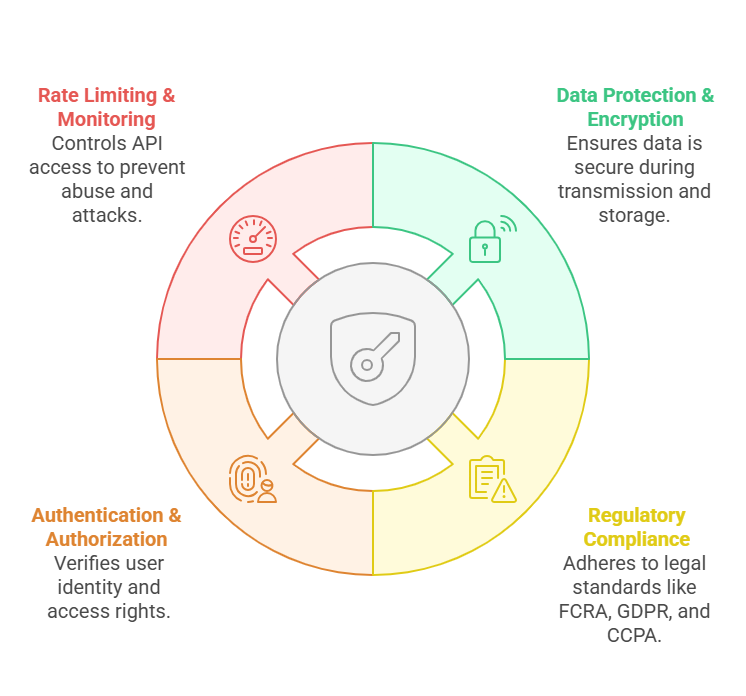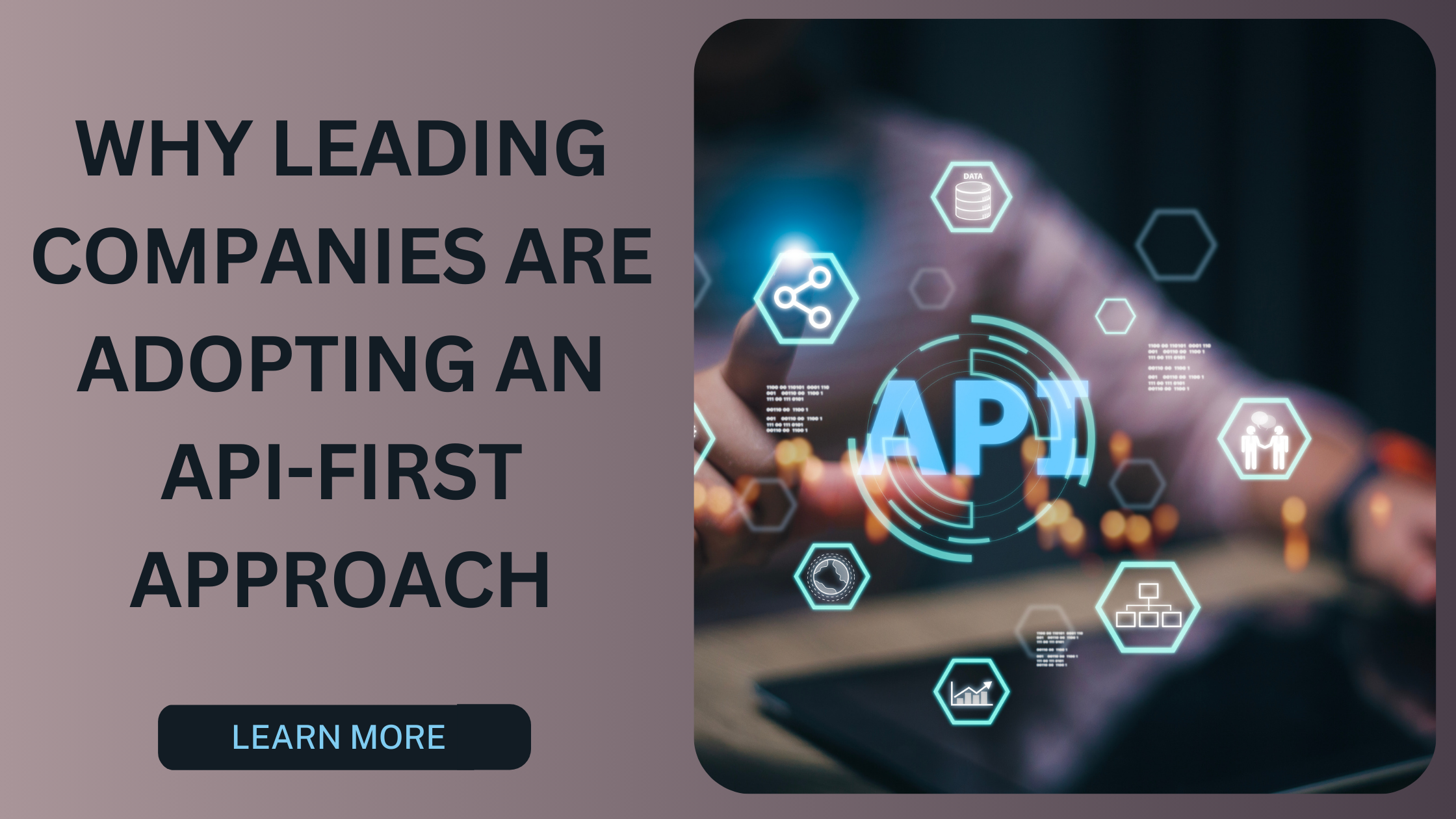Why Forward-Thinking Companies Are Embracing an API-First Approach
An API-first approach is a software development strategy where application programming interfaces (APIs) are designed as the foundation of a system before any other components. Unlike traditional development methods, where APIs are often an afterthought, API-first development treats them as the core building blocks. This methodology ensures that applications are inherently modular, flexible, and capable of seamless integration with other systems.
APIs act as intermediaries that allow different software applications to communicate. In an API-first model, every feature and functionality of a system is exposed through APIs, enabling better connectivity and interoperability. This approach significantly improves the efficiency of software development by allowing teams to work on multiple parts of an application in parallel while ensuring consistency across platforms.
Forward-thinking companies prioritize API-first development because it eliminates the limitations of monolithic architectures, which are rigid and difficult to scale. By focusing on APIs from the outset, businesses can create applications that are easily adaptable to new technologies, ensuring long-term sustainability and innovation.
Why Businesses Are Shifting to API-First Development
Businesses across various industries are rapidly adopting API-first strategies due to their flexibility, efficiency, and cost-effectiveness. Here are some key reasons why API-first development is becoming the preferred choice:

- Agility and Faster Time to Market
API-first development allows businesses to release new features and updates faster. By leveraging APIs, developers can reuse existing components, reducing development time and effort. This results in quicker deployments, enabling companies to respond rapidly to market changes and customer demands. - Scalability and Future-Proofing
Unlike monolithic systems, which require significant restructuring to accommodate growth, API-first architectures are inherently scalable. APIs enable businesses to expand their services without overhauling their entire infrastructure, making them ideal for growing companies. - Seamless Integration with Third-Party Services
In today’s interconnected digital ecosystem, businesses rely on various software solutions to streamline operations. An API-first approach ensures smooth integration with third-party tools, enhancing overall efficiency. For example, API-driven platforms easily connect with CRM systems, payment gateways, and analytics tools. - Automation and Improved Efficiency
APIs enable automation by allowing systems to interact without manual intervention. This is particularly beneficial for industries like finance, healthcare, and e-commerce, where real-time data exchange is crucial for operations. - Cost Savings and Reduced Maintenance Effort
Traditional development requires significant resources to maintain and update software. API-first architectures simplify maintenance by allowing updates to be made at the API level without disrupting the entire system, leading to long-term cost savings. - Real-World Use Cases of API-First Strategies
Many industries have successfully adopted API-first models to enhance their operations.- Fintech: Payment processors like Stripe and PayPal use APIs to enable seamless transactions.
- Healthcare: Telemedicine platforms leverage APIs for secure patient data exchange.
- SaaS: Cloud-based services like Slack and Dropbox provide API integrations for better workflow automation.
API-First vs. Traditional Development: Key Differences
To understand why API-first development is superior, let’s compare it with traditional monolithic development.
| Feature | API-First Development | Traditional Development |
|---|---|---|
| Development Speed | ✅ Faster due to reusable APIs | ❌ Slower, requires rebuilding |
| Scalability | ✅ Easily scalable | ❌ Limited and complex scaling |
| Integration with Third-Party Services | ✅ Seamless and standardized | ❌ Difficult and time-consuming |
| Maintenance & Updates | ✅ Simple, updates made at API level | ❌ High maintenance effort |
| User Experience & Performance | ✅ Enhanced through automation | ❌ Slower, less optimized |
This structured, API-driven methodology allows businesses to innovate faster, reduce costs, and build adaptable systems.
Pros and Cons – API-First vs. Traditional Development
Adopting an API-first approach brings numerous advantages over traditional development models. To understand why forward-thinking companies prefer API-driven solutions, let’s compare the benefits and limitations of both approaches.
Comparison Table: API-First vs. Traditional Development
| Feature | API-First Development ✅ | Traditional Development ❌ |
|---|---|---|
| Scalability | ✅ Highly scalable, supports growth | ❌ Rigid and hard to scale |
| Integration Capabilities | ✅ Seamless integration with other tools | ❌ Complex, requires custom connections |
| Cost Efficiency | ✅ Reduces long-term costs with modular design | ❌ Higher costs due to maintenance and manual processes |
| Security | ✅ Built-in authentication and encryption | ❌ More vulnerable due to outdated architectures |
| Time to Market | ✅ Faster deployment with pre-built APIs | ❌ Slow development due to manual coding |
RapidhireSolutions: The API-Driven Leader in Background Check Services
RapidhireSolutions stands out as a premier provider of background check services by leveraging an API-first approach. Our platform integrates seamlessly with HR software, applicant tracking systems (ATS), and other hiring tools to streamline the screening process.
Why RapidhireSolutions Excels in Background Check Services
- Faster Processing: Our API-driven system reduces background check processing time from weeks to just 24 hours.
- Real-Time Data Retrieval: Employers receive up-to-date, accurate information instantly.
- Automated Compliance: We ensure FCRA, GDPR, and other regulatory compliance through API-based automation.
- Scalable & Flexible: Whether hiring one employee or thousands, our system adapts to business needs effortlessly.
- Seamless Integration: Our APIs work smoothly with existing HR tools, eliminating manual workflows.
Data Table – RapidhireSolutions vs. Traditional Background Check Providers
| Feature | RapidhireSolutions ✅ | Competitors ❌ |
|---|---|---|
| Processing Time | ✅ 24 hours | ❌ 15-20 days |
| Integration Capabilities | ✅ Seamless API | ❌ Manual processes |
| Compliance & Security | ✅ FCRA, GDPR Compliant | ❌ Limited compliance |
| Scalability | ✅ Highly scalable | ❌ Rigid and slow |
| User Experience | ✅ Automated & real-time | ❌ Slow & paper-based |
Let’s Dive into a Proper Analysis
The API-first approach is revolutionizing the background check industry by reducing inefficiencies and eliminating manual delays. RapidhireSolutions is at the forefront of this transformation, offering an automated, compliant, and highly scalable solution that ensures fast and accurate hiring decisions.
Pros and Cons Analysis
Here’s a deeper look at the advantages and disadvantages of API-first development compared to traditional methods:
Pros of API-First Development:
✔ Faster Deployment & Automation – Enables real-time processing and quick system updates.
✔ Seamless Third-Party Integrations – Easily connects with HR and compliance software.
✔ Cost Savings in Maintenance & Updates – Reduces IT expenses and labor-intensive tasks.
✔ Enhanced Scalability for Growing Businesses – Adapts to increasing workforce needs effortlessly.
Cons of Traditional Development:
❌ Slower, Rigid Infrastructure – Hard to adapt to evolving business requirements.
❌ High Maintenance Costs – Requires extensive manual efforts and technical support.
❌ Limited Integration Capabilities – Difficult to connect with modern hiring tools.
Why API-First is the Future
The contrast between API-first and traditional development models is clear. Businesses looking to stay competitive must embrace automation, scalability, and seamless integration. RapidhireSolutions offers an API-driven background check service that aligns perfectly with the needs of modern companies, ensuring speed, accuracy, and compliance in hiring processes.
Legal & Security Considerations for API-First Development
As businesses shift to API-first models, ensuring data security and regulatory compliance is critical. APIs handle vast amounts of sensitive information, especially in industries like background screening, banking, and healthcare. Failing to implement proper security measures can lead to data breaches, non-compliance penalties, and reputational damage.

Key API Security & Compliance Considerations:
- Data Protection & Encryption – APIs must encrypt sensitive data both in transit and at rest to prevent unauthorized access.
- Regulatory Compliance – API-first services must comply with laws such as FCRA (Fair Credit Reporting Act), GDPR (General Data Protection Regulation), and CCPA (California Consumer Privacy Act) to ensure legal hiring practices.
- Authentication & Authorization – Secure APIs require OAuth, JWT tokens, and role-based access controls to prevent misuse.
- Rate Limiting & Monitoring – API access should be restricted based on request limits to prevent abuse and DDoS attacks.
RapidhireSolutions prioritizes API security and compliance, ensuring that all background checks adhere to global data protection regulations. Our API-driven background screening platform is designed with built-in security protocols to protect both employers and candidates.
FAQs
What is an API-first approach, and why is it important?
An API-first approach means designing software with APIs as the foundation rather than as an afterthought. This strategy enhances scalability, integration, and automation, making it easier for businesses to adapt to digital transformation.
How does API-first development improve software scalability?
API-first systems are modular and flexible, allowing businesses to expand their services without overhauling their infrastructure. This makes them highly adaptable to new technologies and market demands.
What industries benefit the most from API-driven solutions?
Industries such as finance, healthcare, HR tech, and SaaS greatly benefit from API-driven solutions. These sectors require real-time data exchange, automation, and seamless third-party integrations.
How does RapidhireSolutions use APIs to enhance background checks?
RapidhireSolutions leverages API technology to automate background checks, reducing processing time to 24 hours. Our APIs integrate with HR software, ensuring faster, compliant, and accurate hiring decisions.
What are the key security challenges with APIs, and how can they be addressed?
Common API security challenges include data leaks, unauthorized access, and API abuse. These can be mitigated with encryption, authentication protocols, rate limiting, and continuous monitoring.
Conclusion
API-first development is revolutionizing the way businesses build, scale, and integrate software solutions. By prioritizing APIs, companies achieve greater agility, cost efficiency, and automation, making them more competitive in the digital era.
RapidhireSolutions is a leader in API-driven background screening, offering fast, secure, and compliant hiring solutions. By adopting API-first technology, businesses can ensure seamless hiring processes, reduce operational inefficiencies, and maintain compliance with global regulations.
For forward-thinking companies, embracing an API-first approach is no longer an option—it’s a necessity. The future belongs to businesses that innovate with APIs.

